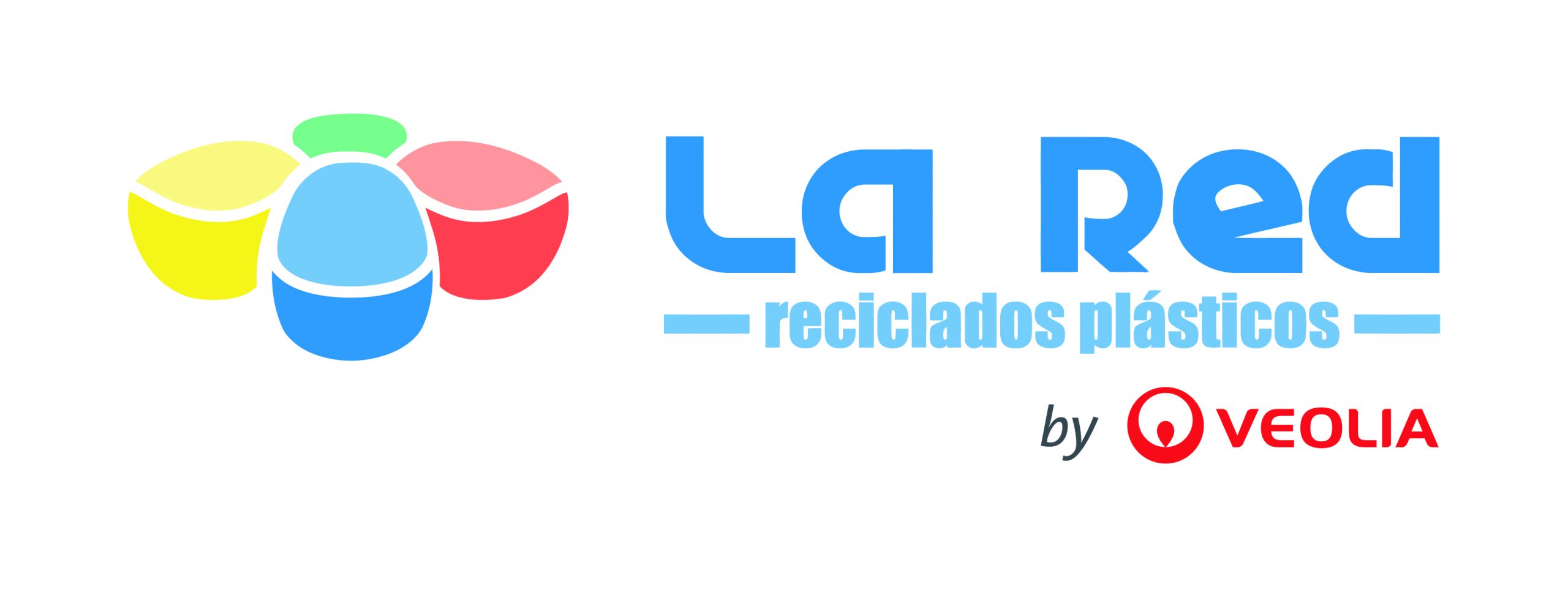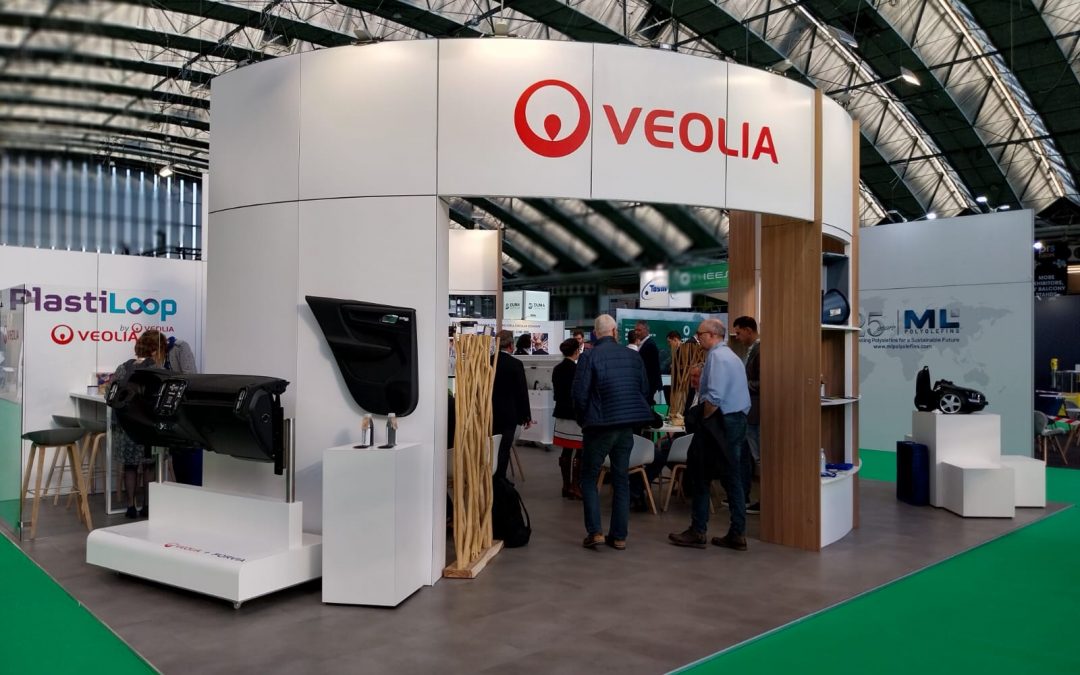
by webmasterMT | Apr 9, 2025 | Sin categoría
The Plastics Recycling Show Europe (PRS Europe) 2025, held in Amsterdam, established itself as the largest global event in the plastic recycling industry. With record attendance, the event brought together thousands of professionals and hundreds of companies from the entire plastic value chain. From recyclers, machinery manufacturers and transformers, to large consumer brands, all gathered to share the latest innovations and discuss key industry trends.
Attendance at PRS Europe 2025 pointed to a new record, reflecting the rapid growth of interest in plastic recycling. The fair featured around 500 exhibiting companies, surpassing the approximately 480 exhibitors from the previous edition. In fact, many exhibitors from previous years expanded their stands in 2025 and numerous new companies joined for the first time, forcing the organization to expand the event to larger pavilions.
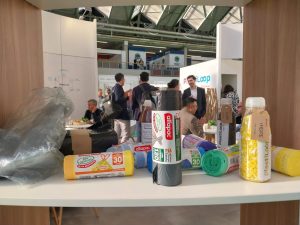
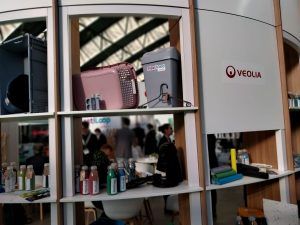
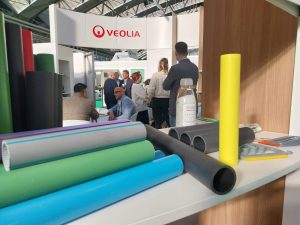

Main themes and trends in the sector
At the PRS Europe 2025 conference program, a variety of crucial topics that set the agenda for plastic recycling in Europe were addressed. One of the main focus areas was legislative and policy news: the challenges of complying with the upcoming European regulations, such as the new Packaging and Packaging Waste Regulation (PPWR), and how these rules will influence the sector were discussed.
Emphasis was also placed on strategies to overcome current recycling challenges in the EU, including ways to increase the collection and sorting rates of plastic waste, improve the traceability of recycled content in products, and encourage synergies between mechanical and chemical recycling
Another highlighted trend was the focus on the market and circularity objectives: the situation of the recycled plastics market, the evolution of demand and prices, and the prospects for achieving the ambitious recycled content objectives set by regulations and companies themselves were discussed.
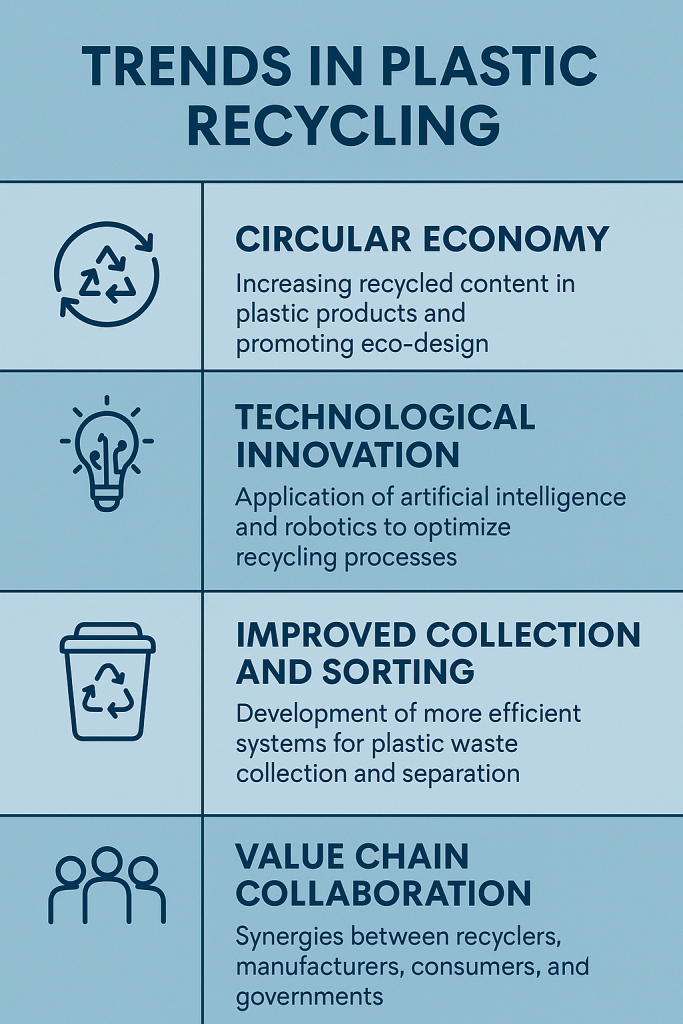
Highlighted Technological Innovations
The fair placed a strong emphasis on technological innovations applied to recycling, demonstrating how digitization and R&D are transforming the sector. A specific space, the ‘AI Innovation Hub‘, showcased the most recent applications of artificial intelligence (AI) in recycling processes.
Visitors were able to tour different stages of the chain through interactive panels and explanatory videos about AI. In addition, there were live demonstrations of emerging technologies, such as a swarm-type cooperative robot system performing autonomous sorting of plastic waste.
AI-based solutions promise to improve efficiency and accuracy in material separation, reduce the need for manual labor, and optimize plant performance by analyzing data in real time.
Presence of leading companies and strategic collaborations
PRS Europe 2025 brought together a wide representation of leading companies from the entire industrial chain, serving as a meeting point to generate synergies and alliances. In total, almost 500 exhibiting companies participated, including not only recyclers and producers of recycled plastic, but also manufacturers of machinery and cutting-edge technologies.
Suppliers of materials and plastic compounds, waste preprocessors, both mechanical and chemical recyclers, waste managers and even sectorial alliances displayed their novelties. At the same time, the fair attracted the active participation of large corporations users of plastics: mass consumption brands and related sectors sent representatives to get involved in the conferences and panels.
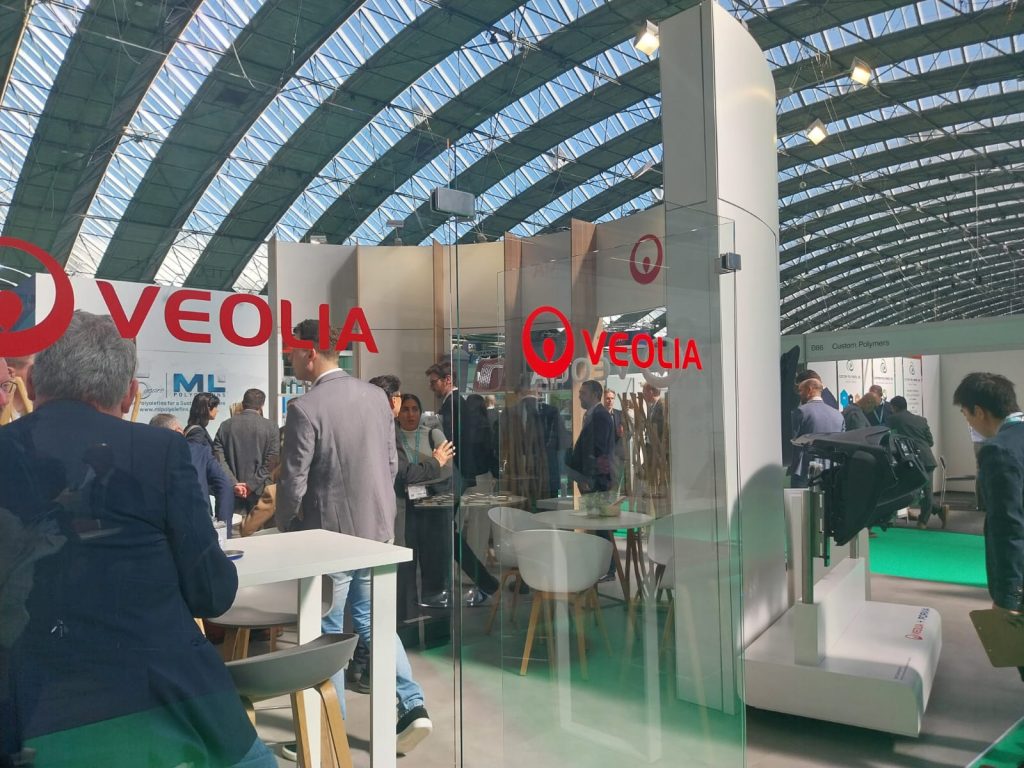
Conclusions and impact for the industry
The general conclusions after PRS Europe 2025 are very encouraging for the future of the plastic industry and the circular economy. Firstly, the success of the call confirms that plastic recycling has become a central issue for the entire plastic sector, not just specialized recyclers.
The presence of actors from the entire value chain, from European authorities to end users, showed that there is broad consensus on the importance of redesigning the plastic life cycle towards sustainability.
The discussions and innovations presented made it clear that concepts such as recyclability and circularity are no longer theoretical objectives, but concrete commitments that companies and governments are incorporating into their strategic plans.
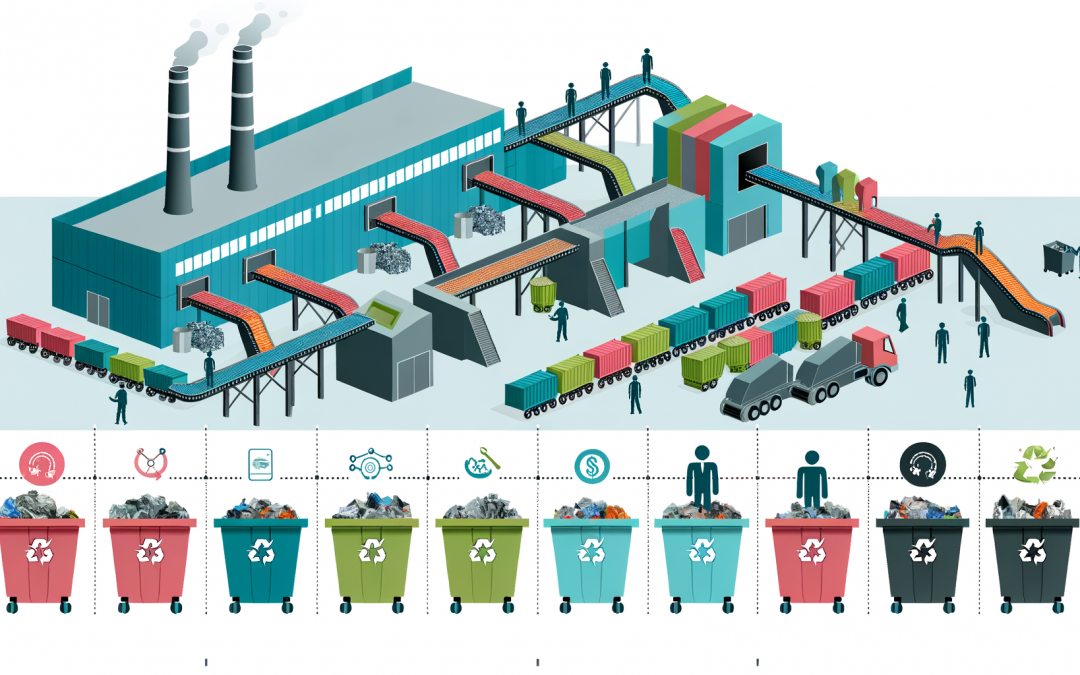
by webmasterMT | Feb 3, 2025 | Sin categoría
Companies can significantly improve their industrial waste separation processes by adopting a series of strategies as we list below, thus contributing to a cleaner environment and a more circular economy.
Improving industrial waste separation is crucial to increasing recycling efficiency and minimizing environmental impact. Here are some strategies that companies can implement:
1. Waste audits: Conduct regular audits to assess the types and quantities of waste generated. This helps to identify opportunities to improve separation and recycling of waste.
2. Employee training: Educate staff on the importance of proper waste separation and how to do it correctly. This can include specific training sessions and the inclusion of recycling practices in induction programs.
3. Implementation of internal sorting systems: Place clearly labeled containers for different types of waste in key production areas. Ensure that these containers are accessible to workers.
4. Separation technology: Use advanced technologies, such as automatic waste sorting systems, that use sensors and separation mechanisms to sort materials more efficiently.
5. Collaboration with waste management companies: Work with waste management experts to optimize recycling and separation practices. These companies can offer advice on how to improve processes and which materials can be recycled.
6. Source reduction: Implement strategies to reduce waste generation at the source, such as redesigning products or production processes to minimize waste.
7. Creation of corporate sustainability policies: Develop corporate policies that prioritize sustainability and proper waste management. This promotes an organizational culture committed to recycling and correct waste separation.
8. Continuous monitoring and review: Implement a monitoring system to follow progress in waste management and make adjustments as needed. Regularly review procedures to identify possible improvements.
9. Incentives for staff: Create incentive programs to motivate employees to actively participate in waste separation and recycling, such as bonuses for meeting certain goals or internal competitions.
10. Transparent communications: Keep all employees informed about goals, achievements, and changes in waste management strategies. Transparency can foster a sense of collective participation.
What are the economic benefits of implementing these industrial waste separation strategies?
Implementing effective industrial waste separation strategies can bring several economic benefits to companies. Here are some of them:
1. Reduction of waste management costs: By correctly sorting waste and maximizing recycling, disposal rates and costs associated with sending waste to landfills are reduced.
2. Sale of recyclable materials: Many correctly separated materials can have value in the recycling market. Companies can sell these materials to recyclers and generate an additional source of income.
3. Improved operational efficiency: The implementation of waste separation systems and processes can lead to more efficient use of materials, reducing waste and increasing overall operational efficiency.
4. Regulatory compliance and avoidance of fines: Complying with local, national, and international waste management regulations can avoid costly fines. In addition, being in compliance can improve the company’s reputation.
5. Resource optimization: By reducing material use and improving the recycling rate, resource use is optimized, which can result in less need to buy virgin raw materials.
6. Incentives and grants: In some cases, governments offer incentives or grants to companies that demonstrate sustainable waste management practices. These can include tax reductions or financial support.
7. Competitive advantage: Companies that implement sustainable practices often improve their corporate image. This can increase their appeal to customers, investors, and consumers, potentially increasing sales and fostering long-term business relationships.
8. Innovation and development of new products: Attention to waste management can encourage innovation in product design, which could open up new market opportunities or create more competitive and sustainable products.
9. Increase in employee morale and productivity: Creating a work environment that values and encourages sustainability can improve employee morale and productivity, which brings indirect economic benefits.
10. Preparation for future regulations: With the tightening of environmental regulations, being ahead in sustainability prepares companies for future regulatory changes, avoiding costs associated with a hurried adaptation.
Waste separation strategies not only help the environment, but they can also have a significant positive financial impact for companies that effectively implement them.
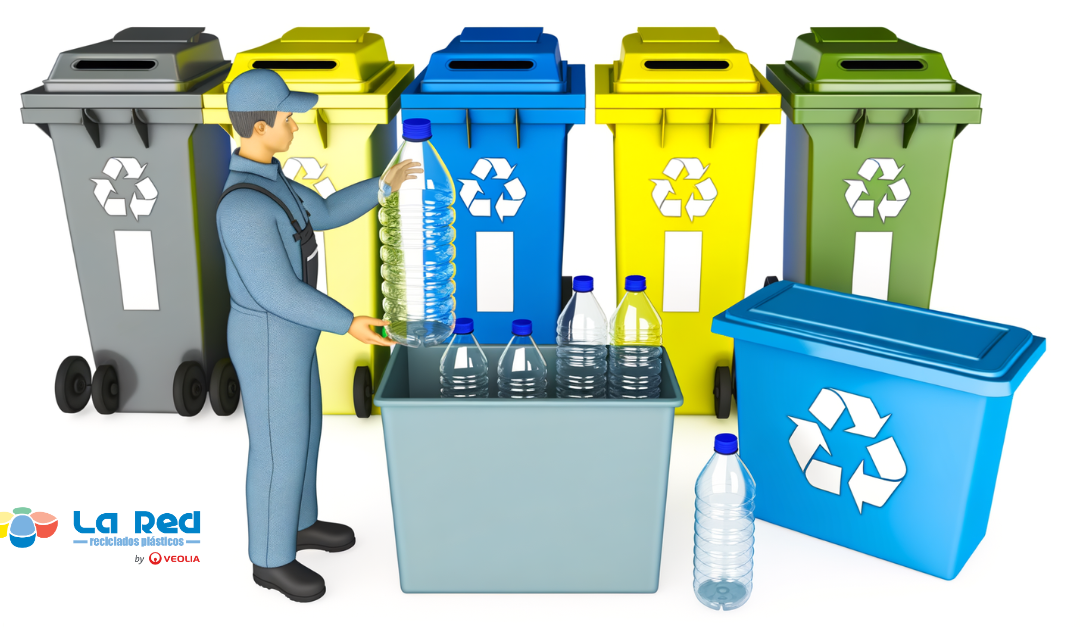
by webmasterMT | Jan 15, 2025 | Sin categoría
At Reciclados La Red by Veolia, sustainability and proper waste management have always been our priorities. With the entry into force of Royal Decree 1055/2022 on Packaging and Packaging Waste from January 1, Spain has taken a significant step towards improving recycling, especially in relation to plastic packaging.
One of the main novelties of this decree is the obligation for manufacturers of domestic packaging to clearly specify on their products the container in which they should be deposited for recycling. This labeling seeks to facilitate consumers’ correct separation of waste, something we consider essential to optimize the recycling process.
This regulatory change is not only a step towards more responsible waste management, but it also has a direct impact on our activity as plastic recyclers. By ensuring that more plastic containers end up in the appropriate bin, the efficiency of recycling is increased and the quality of the recycled plastic we obtain is improved. Ultimately, this allows us to offer our customers a purer and higher quality recycled product.
On the other hand, the decree excludes B2B (business to business) packaging from this labeling obligation. Although this could pose a challenge in the separation of industrial waste, it also represents an opportunity for companies in the sector to improve their own packaging classification and recycling systems.
At Reciclados La Red by Veolia, we see this decree as an opportunity to reinforce our sustainable practices and collaborate with our customers and suppliers to promote higher quality recycling throughout the production and consumption chain. We continue in our mission to not only provide innovative and effective solutions for the management and recycling of plastics, but also to contribute to a more sustainable future.
We hope that these new regulations will encourage more companies and consumers to take conscious steps towards a circular economy, in which resources are used efficiently and responsibly.
We remain attentive to any changes and extensions in the regulations to continue adapting and promoting efficient plastic recycling in Spain. We invite all our partners and customers to collaborate in this path towards a cleaner and more sustainable future.

by webmasterMT | Nov 13, 2024 | Sin categoría
In recent years, artificial intelligence (AI) has begun to revolutionize the plastic recycling sector, introducing new technologies that make the process more efficient and effective. These innovations are helping to maximize recycling rates and reduce the environmental impact of plastic waste.
One of the most promising applications of artificial intelligence in recycling is the improvement of the waste sorting process. Traditionally, this task has been manual, which is slow and prone to errors. With the use of computer vision systems, recycling plants can identify and sort different types of plastics with much greater accuracy and speed than possible manually. This not only increases the efficiency of recycling, but also improves the quality of recycled plastic.
In Spain, several initiatives are already incorporating artificial intelligence into their recycling operations. For example, some plants are using robots equipped with AI that not only separate different types of plastics, but also extract impurities from the recycling lines. These innovative technologies optimize resources and reduce operational costs, making recycling more economically sustainable.
In addition to sorting, artificial intelligence is also helping to predict and manage waste flows. In Europe, there are research projects that use AI algorithms to analyze waste collection data, allowing cities to optimize collection routes, predict peaks in the amount of plastic waste, and improve logistical planning. All of this contributes to more efficient and sustainable management of plastic recycling.
The rise of artificial intelligence in the plastic recycling sector is also stimulating collaboration between technology companies and recycling organizations. This synergy not only drives innovation, but also encourages the development of new technological solutions that can be transferred to other related sectors, such as electronic waste management or metal recycling.
At Reciclados La Red by Veolia, we recognize the importance of being at the technological forefront to continually improve our plastic recycling processes. Therefore, we consistently invest in new technologies that allow us to optimize each stage of recycling. These investments include the implementation of advanced sorting systems with optics and intelligent sensors, which improve the accuracy and efficiency of our work. We are also studying the use of artificial intelligence algorithms to more effectively manage our operations and resources. These initiatives not only reinforce our ability to process plastics more sustainably and efficiently, but also contribute to establishing a higher standard in the recycling industry in Spain and Europe.
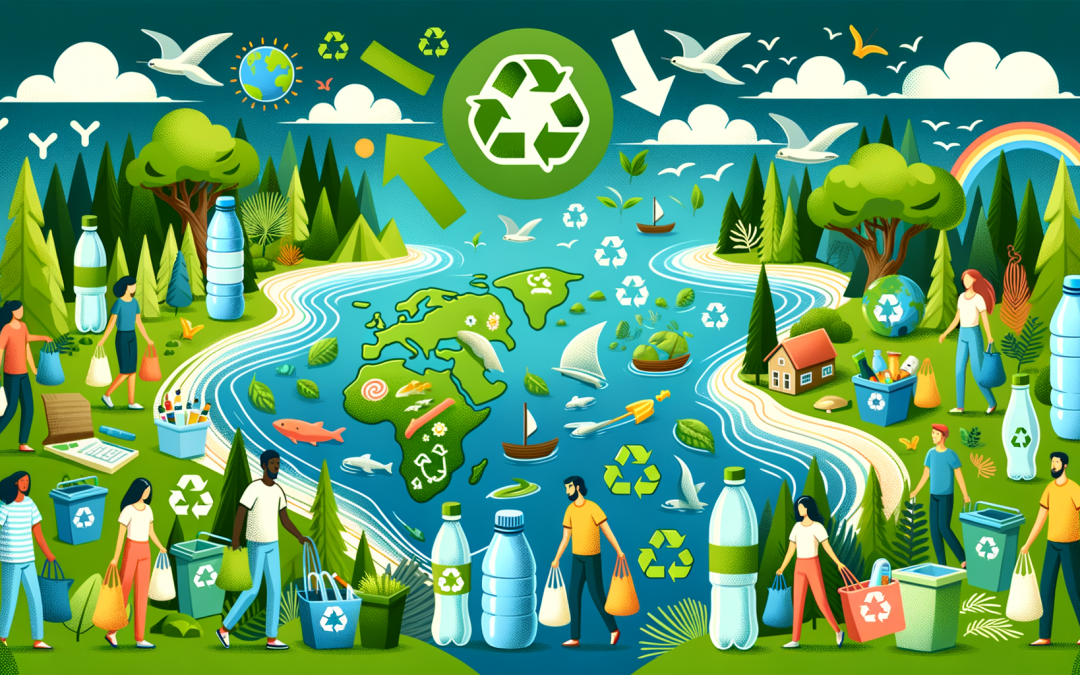
by webmasterMT | Oct 30, 2024 | Sin categoría
Currently, the growing concern for the environment has highlighted the urgent need to review our consumption and production practices, especially regarding the use of plastics. Each year, millions of tons of virgin plastics are produced, generating a significant environmental impact due to the extraction of natural resources and their accumulation in ecosystems around the world. At Reciclados La Red by Veolia, we believe that reducing the use of virgin plastics is fundamental to mitigate these negative effects.
Reducing the use of virgin plastics has multiple real and tangible benefits for the health of the planet. First, it decreases the dependence on fossil fuels, as most virgin plastics are produced from oil and natural gas. Also, by limiting ourselves to already existing materials, the amount of plastic waste that ends up in the oceans, rivers, and other crucial ecosystems is significantly reduced.
On the other hand, the use of products made from recycled plastic emerges as an effective and sustainable solution. By choosing recycled plastics, we contribute to closing the product’s life cycle, preventing waste from ending up in landfills and reducing greenhouse gas emissions associated with the production of new plastics. In this way, every conscious choice of a recycled plastic product helps protect natural habitats and preserve biodiversity.
At Reciclados La Red by Veolia, our experience in managing and transforming plastic waste allows us to offer high-quality materials that meet the needs of various industrial sectors. At the same time, these sustainable solutions provide businesses and consumers an opportunity to actively participate in caring for the environment.
Individual consumers play a crucial role in reducing the use of virgin plastics and can contribute in various ways in their daily lives. Here are some specific actions they can take:
- Choose recycled plastic products: By choosing products made from recycled materials, consumers support industries that promote recycling and reduce the demand for virgin plastics.
- Reject single-use products: Avoid using disposable plastics, such as bags, bottles, and single-use utensils. Instead, choose reusable alternatives, such as water bottles, cloth bags, and metal cutlery.
- Recycle properly: Actively participate in local recycling programs, making sure to properly separate recyclable materials and clean containers before placing them in recycling bins.
- Support sustainable brands: Buy products from companies that prioritize the use of recycled materials in their packaging and products. Many brands are innovating in this area, and consumers can support this trend with their purchasing decisions.
- Reduce unnecessary consumption: Adopt a minimalist and conscious lifestyle, assessing the need for each purchase. Reducing consumption decreases the demand for new products and, therefore, for new materials.
- Use refillable containers: Look for stores that offer the option to buy bulk products or refill containers with products such as detergents, foods, and cosmetics. This approach reduces the need for new plastic containers.
By incorporating these practices into their daily lives, consumers can significantly reduce the use of virgin plastics, contributing to the well-being of the planet and supporting the transition to a more circular and sustainable economy.
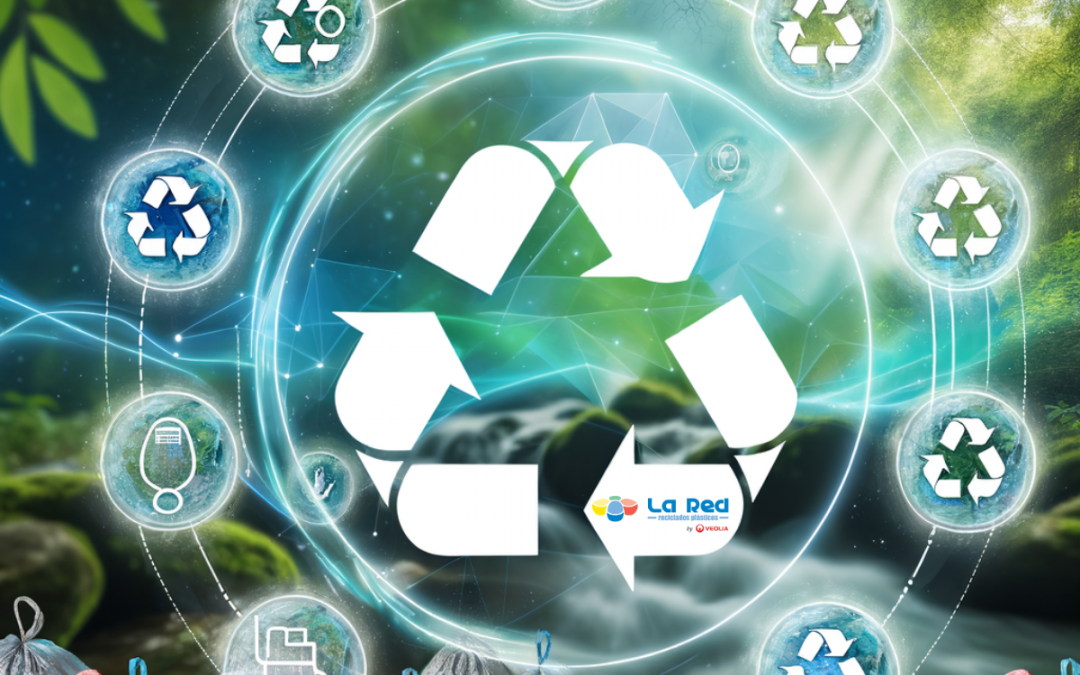
by webmasterMT | Oct 4, 2024 | Sin categoría
In the current scenario marked by increasing concern for sustainability and efficient resource management, the circular economy has positioned itself as a key model to address environmental challenges. This approach, which contrasts with the traditional model of “produce, use and discard,” proposes an endless cycle where waste is transformed into resources, significantly contributing to the reduction of the ecological footprint. At Reciclados La Red by Veolia, we are part of this transformation through our commitment to plastic recycling and the production of recycled plastic.
The circular economy focuses on three fundamental principles: the elimination of waste and pollution from design, the conservation of products and materials in use for as long as possible, and the regeneration of natural systems. By applying these principles, we seek to maximize resource efficiency and minimize environmental impact. This approach has not only economic implications, but also consolidates a path towards long-term sustainability.
Plastic, a material ubiquitous in our daily life, has proven to be a particular challenge in terms of waste management. Every year, millions of tons of plastic end up in landfills or, worse, in the oceans, causing irreversible damage to the environment. This is where our mission at Reciclados La Red by Veolia comes into play: to transform the way we manage and use plastic.
Our process begins with the collection of plastic waste that would otherwise be discarded. These materials undergo a rigorous sorting and cleaning process, ensuring they can be efficiently recycled. Through advanced technologies, we convert this waste into high-quality recycled plastic granules, ready to be reused in a variety of industrial and commercial applications.
This process not only reduces the amount of plastic waste, but also decreases the need to produce new plastic from fossil resources. The production of recycled plastic consumes less energy and generates fewer CO2 emissions compared to the production of virgin plastic, thus contributing to the moderation of climate change. In addition, by extending the useful life of plastic materials, we promote a more circular and sustainable economy.
The benefits of recycled plastic for businesses that use it are numerous. Not only do they offer a more eco-friendly option, but they can also contribute to improving corporate reputation and compliance with increasingly strict environmental regulations. By opting for recycled products, companies can actively participate in creating a sustainable future, showing their consumers and society at large that they are committed to a positive impact on the planet.
At Reciclados La Red by Veolia, we believe in the power of collaboration. We work hand in hand with our suppliers and customers to close the loop of the circular economy. Our approach not only focuses on offering high-quality recycled products, but also on educating and raising awareness about the importance of recycling and sustainability. We want to inspire more businesses and consumers to join this cause, demonstrating that positive change is possible.
The circular economy is not just an option, it is the solution for a more sustainable planet. We are here to help you be part of this transformation!







